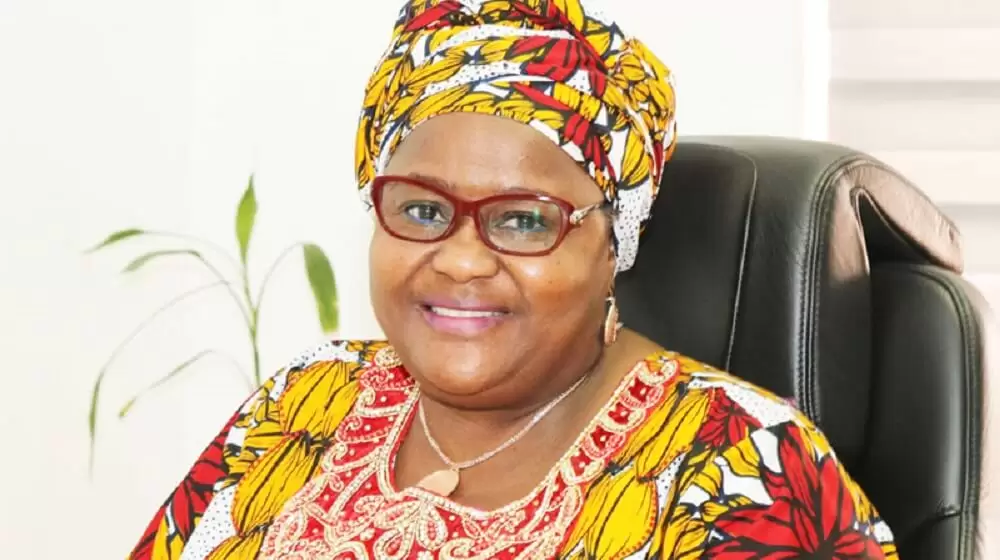At a recent workshop for journalists covering the pension industry, the Director-General of the National Pension Commission (PenCom), Aisha Dahir-Umar, laid out her plans to expand the Contributory Pension Scheme of the commission and requested the media to sell the scheme to Nigerians.
The CPS is an arrangement where both the employer and the employee contribute a portion of an employee’s monthly emoluments towards the payment of the employee’s pension at retirement. The scheme, which kicked off in 2004, is fully-funded and based on individual Retirement Savings Accounts (RSA). The CPS has created a pool of long-term funds which have been invested in the economy.
Advertisement
Since taking over at PenCom, Dahir-Umar’s commitment to aggressive campaign has expanded the scheme and drawn more employed Nigerians into the pension net. The scheme has now accumulated N13.879 trillion at the end of March 2022. Thus, the CPS has created funds for long-term investments which has significantly impacted capital formation and investment in the country.
But more importantly, at the individual level, it has ensured that everyone who has worked receives his/her retirement benefits as and when due. The payment of benefits is ample evidence that the CPS is providing financial security to Nigerian retirees.
And this has been true, especially in the last two years. During the first quarter of 2022 alone, PenCom approved 7,724 requests for retirement benefit payments. The requests consisted of 5,326 payments under Programmed Withdrawal (PW) and 2,398 under Retiree Life Annuity (RLA).
PenCom also approved PFAs to pay N6.545 billion to 9,578 RSA holders under the age of 50 years that lost their jobs and were unable to secure another employment four months after. In addition, PenCom granted approvals to pay death benefits to the Administrators/ Legal Beneficiaries of 3,001 deceased employees and retirees in the sum of N16.03 billion during the period.
Advertisement
But while the CPS has reformed pension administration in Nigeria, it covers only employees in the public service of the Federation, the Federal Capital Territory, and employers of 5 or more employees in the private sector. That means the CPS currently benefits those in the formal sector of the economy, who are about 10 percent of employed Nigerians. The other 90 percent have been left out.
According to a recent World Bank report, Nigerians employed in the informal sector constitute 80.4 per cent of the total working population of the country. The report stated that 10 per cent is in the formal sector and 9.6 per cent in households.
If this category of Nigerians is captured in the CPS, it is going to have a monumental impact on the economy and the standard of life available to retirees.
This is why President Muhammadu Buhari administration has launched the Micro Pension Scheme. Getting the informal sector’s voluntary buy-in into the CPS scheme is an initiative being vigorously pursued by PenCom. This is why Dahir-Umar and her team at PenCom are strategizing to ensure that Nigerians trust the system and feel confident enough to embrace the initiative.
Under the direction of the DG, PenCom hopes to provide incentives such as health insurance to those that will embrace the scheme, and further simplify the documentation process for pensioners under the CPS.
Advertisement
Buhari had on April 27, 2019, officially launched the Micro Pension Plan as part of his administration’s efforts to ensure that Nigerians who worked hard during their active years live in dignity and retire without financial worries.
The MPP was initiated by PenCom to increase informal sector participation in the CPS. The plan would cover small-scale businesses, entertainers, professionals, petty traders, artisans, and entrepreneurs.
Dahir-Umar had said after the launch that the MPP is designed to curb old-age poverty by assisting workers to contribute while working and build long-term savings to fall back on when they become old. Since 2019 when it was launched, the MPP has garnered over 72,846 contributors who had been registered by Pension Fund Administrators.
Mindful of the critical role of the press in information dissemination, Dahir-Umar told journalists at a recent workshop that the MPP “remains one of the important areas of focus of the Commission,” adding that she and her team are strategizing to “boost confidence in the participation of the MPP.”
Besides providing health insurance for contributors, PenCom is also implementing a handful of measures to improve the pension scheme of contributing and accessing pension savings.
One of the important steps taken is the Revised Regulation on the Administration of Retirement and Terminal Benefits which is now being implemented by PFAs. The revised regulation, which guides the process of accessing retirement and terminal benefits, has mandated PFAs to ensure that processes of documentation before retirement of contributors should be concluded within four months prior to the date of retirement.
Advertisement
The revised regulation includes clarifications and simplification of documentation processes, Retirement Savings Account consolidation before payments of retirement benefits, accrued pension benefits for private sector contributors, and additional lump sum payments.
Highlights also include that retirees shall be allowed to access additional lump sum after the payment of the initial lump sum provided that there are additional inflows of funds into the RSA from the employers, among others.
It also contains several new provisions on Pension Enhancement, Voluntary Contributions, payment under the Micro Pension Plan, payment of benefits of missing persons, and payment of Nigeria Social Insurance Trust Fund benefits.
It also provides for administrative sanctions on PFAs who disregard the provisions of the Regulation. This is to ensure that the objectives of the regulations are not sabotaged by PFAs.
It’s Dahir-Umar’s commitment to creating better awareness around pension administration through social dialogue that is changing the narrative. PenCom must continue along this trajectory to boost more confidence and trust in the pension industry.
– Tajudeen writes from Abuja.
Disclaimer: This article is entirely the opinion of the writer and does not represent the views of The Whistler.



